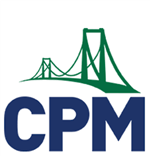
-
SAUSD uses College Preparatory Mathematics [CPM] for grades 6-12. CPM contains problem based learning which is centered around three pillars of CPM that are validated by 25+ years of solid research to prove their effectiveness in student success and long-term retention. Students will...
- Work in effective Collaborative study teams on
- Real- life Problem Based questions to stimulate student discourse about mathematics, and
- Mastery over time, daily have spaced practice to develop understanding.
Empowering mathematics students and teachers through exemplary curriculum, professional development, and leadership
CPM Educational Program is a California nonprofit 501(c)(3) corporation dedicated to improving grades 6-12 mathematics instruction.
CPM’s mission is to empower mathematics students and teachers through exemplary curriculum, professional development, and leadership. We recognize and foster teacher expertise and leadership in mathematics education. We engage all students in learning mathematics through problem solving, reasoning, and communication.
CPM envisions a world where mathematics is viewed as intriguing and useful, and is appreciated by all; where powerful mathematical thinking is an essential, universal, and desirable trait; and where people are empowered by mathematical problem-solving and reasoning to solve the world’s problems.
To be successful in mathematics, students need to develop the ability to reason mathematically. To do so, students need to think about what they already know and then connect this knowledge to the new ideas they are learning. Many students are not used to the idea that what they learned yesterday or last week will be connected to today’s lesson. Too often students do not have to do much thinking in school because they are usually just told what to do. When students understand that connecting prior learning to new ideas is a normal part of their education, they will be more successful in this mathematics course (and any other course, for that matter). The student’s responsibilities for learning mathematics include the following:
- Actively contributing in whole class and study team work and discussion.
- Completing (or at least attempting) all assigned problems and turning in assignments in a timely manner.
- Checking and correcting problems on assignments (usually with their study partner or study team) based on answers and solutions provided in class and online.
- Asking for help when needed from his or her study partner, study team, and/or teacher.
- Attempting to provide help when asked by other students.
- Taking notes and using his/her Toolkit when recommended by the teacher or the text.
- Keeping a well-organized notebook.
- Not distracting other students from the opportunity to learn.
Assisting your child to understand and accept these responsibilities will help him or her to be successful in this course, develop mathematical reasoning, and form habits that will help her/him become a life-long learner.

